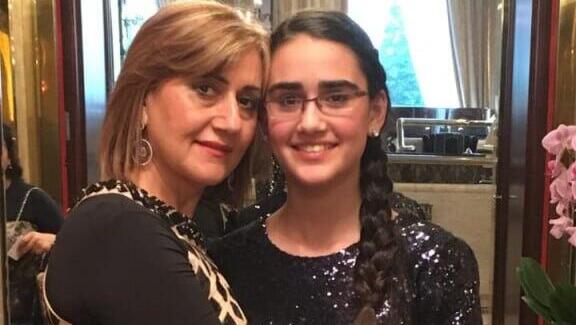Getting your Trinity Audio player ready...
"It may seem as if we're standing upright, but we're dead inside." With these poignant words, Edna Mor describes her daily struggle since her daughter Shirel was killed at the Nahal Oz base on October 7.
"I miss her so much. I have a few recordings from concerts she participated in and some recorded messages we sent each other from time to time. But I miss her voice; I want them to bring back her voice to me," according to Edna.
Nearly four months ago, Edna approached IDF officials to obtain recordings from her daughter's last shift. Beyond the relentless longing, she, like many other parents, seeks answers, wanting to know what transpired during the last hours of her daughter's life.
"The last time we spoke was on the night between Thursday and Friday," she recalls. "On Friday, I tried to call her, but she had probably already started her shift. I couldn't speak to her that morning. I think she believed they were going to be rescued and didn't want to scare us. But no one came."
"I don't understand why it takes so long," she adds. "I want to have a memento of my daughter's voice. They took my child from me, at least give me back her voice. I want to know what happened there. How will we discover the truth?"
For many months, the parents of the female observers who were murdered by Hamas terrorists at the Nahal Oz outpost have been asking the IDF to provide the recordings of their daughters' communication from their last shift. So far, the families of the observers who were on duty on the morning of October 7 have received partial recordings, but the other families, whose daughters were on duty during the night or on standby, have received nothing.
"If we need to fight for this as well, we will," the families said in a statement. "We gave the army what was most precious to us, and the army isn't even willing to give us the minimum and shed light on the last day of our daughters' lives. This is inhumane and smells like an attempt to hide the truth from us."
Nine months have passed since the massacre, and so many questions remain unanswered. "Hadar is never out of my mind for a moment," says Ilanit Cohen, whose daughter was killed at Nahal Oz. "I think about her last moments, what happened there, what she felt. I don't even know where she was killed. Until we get answers, it won't let go."
"Hadar was on duty until midnight," she recalls. "After that, she was on standby until 4 a.m. She went to sleep at 4:30 a.m. and woke up to the disaster. I want to hear her; for me, it's hearing my daughter's voice in her final hours. It's important to us. We want answers. To understand what happened that night. We sent our daughters beautiful, smart and motivated, and we got them back in coffins."
"We deserve answers because we gave what was most precious to us," adds Ilana Nisani, mother of Shachaf, who was also killed at Nahal Oz. "Shachaf was supposed to be discharged from the army on October 11. That night, she was on duty from midnight to 6:00 a.m., and on standby from 4:00 a.m. to 6:00 a.m. Something happened during those hours, and I want to know what."
"I think it's a basic right to know what happened to my daughter in her last hours. She was at Nahal Oz for two years, the most experienced. I heard the recordings of the girls who were on duty, how brave they were, and I want to hear my daughter too. It's very important to me. I didn't even get her dog tag back, so at least give us that much, just the bare minimum that remains for my memory."
The IDF spokesperson responded in a statement: "The IDF keeps operational and intelligence information collected as part of the duties of any fallen soldier confidential. Information that can be presented to the families is shown to them. Recordings approved for transfer to the bereaved families are the recordings belonging to the soldiers who were on duty in the command center during the raid event on October 7."




